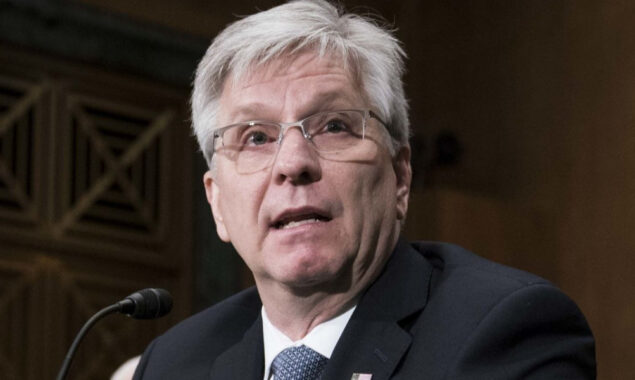
Fed Governor Christopher Waller was the top economist at the St. Louis regional Fed bank before joining the board in Washington in late 2020. @google
- Another 75 basis point increase in interest rates at the next policy meeting in late July.
- Waller attributed the Fed’s sluggish response to inflation to its December 2020 directive to reduce asset purchases.
- This week, the yield on 10-year Treasury notes rose 8 basis points to 3.24 percent.
Christopher Waller, governor of the Federal Reserve, stated on Saturday that he would like to see another 75 basis point increase in interest rates at the next policy meeting in late July.
Waller supported the Fed’s decision last week to increase its benchmark interest rate by 75 basis points to a range of 1.5-1.75 percent. It was the highest rate increase since 1994.
Read More: As Inflation Continues to Rise & Recession Fears Loom, YouGov poll
“In my view, and I speak only for myself, if the data comes in as I expect, I will support a similar sized move at our July meeting,” Waller said, during a panel discussion hosted by the Dallas Society for Computational Economics.
If the Fed increases its benchmark rate by another 75 basis points in July, it will have increased it by nearly 225 basis points since March. The last time the central bank raised its benchmark rate by that amount, between 2016 and 2018, it took three years.
Waller stated that the rapid increase in the Fed’s benchmark interest rate in 2022 should not have come as a surprise.
Ultimately, he stated. The Fed aimed to restore the economy to its pre-recession strength. Officials stated that they would not raise the policy rate from its current near-zero level until these conditions were met. Prior to the pandemic in early 2020, the Fed’s benchmark rate fluctuated between 1.5 percent and 1.75 percent.
Once the central bank began to tighten monetary policy, any of the well-known rules for interest-rate policy would dictate that the benchmark rate would need to rise significantly faster than in the past.
In March, when the consumer price inflation rate reached a 40-year high of 8.6 percent, many outside critics of Fed policy note that the central bank was still purchasing assets.
Waller attributed the Fed’s sluggish response to inflation to its December 2020 directive to reduce asset purchases.
In this forward guidance, the Fed stated that it would continue to purchase assets until “substantial father progress” was made toward the maximum employment objective.
Waller stated that he believed this guidance was too “restrictive” and did not provide the Fed with the necessary flexibility to slow and stop asset purchases and then begin raising its benchmark interest rate to combat higher inflation.
Read More: Jim Cramer predicts Bitcoin will fall below $12,000
“If we had less restrictive tapering criteria and had started tapering sooner, the FOMC could have more flexibility on when to begin raising rates, Waller said.
This week, the yield on 10-year Treasury notes rose 8 basis points to 3.24 percent. The yield has increased 1.74 percentage points year-to-date.
Read More News On
Catch all the Business News, Breaking News Event and Latest News Updates on The BOL News
Download The BOL News App to get the Daily News Update & Follow us on Google News.




